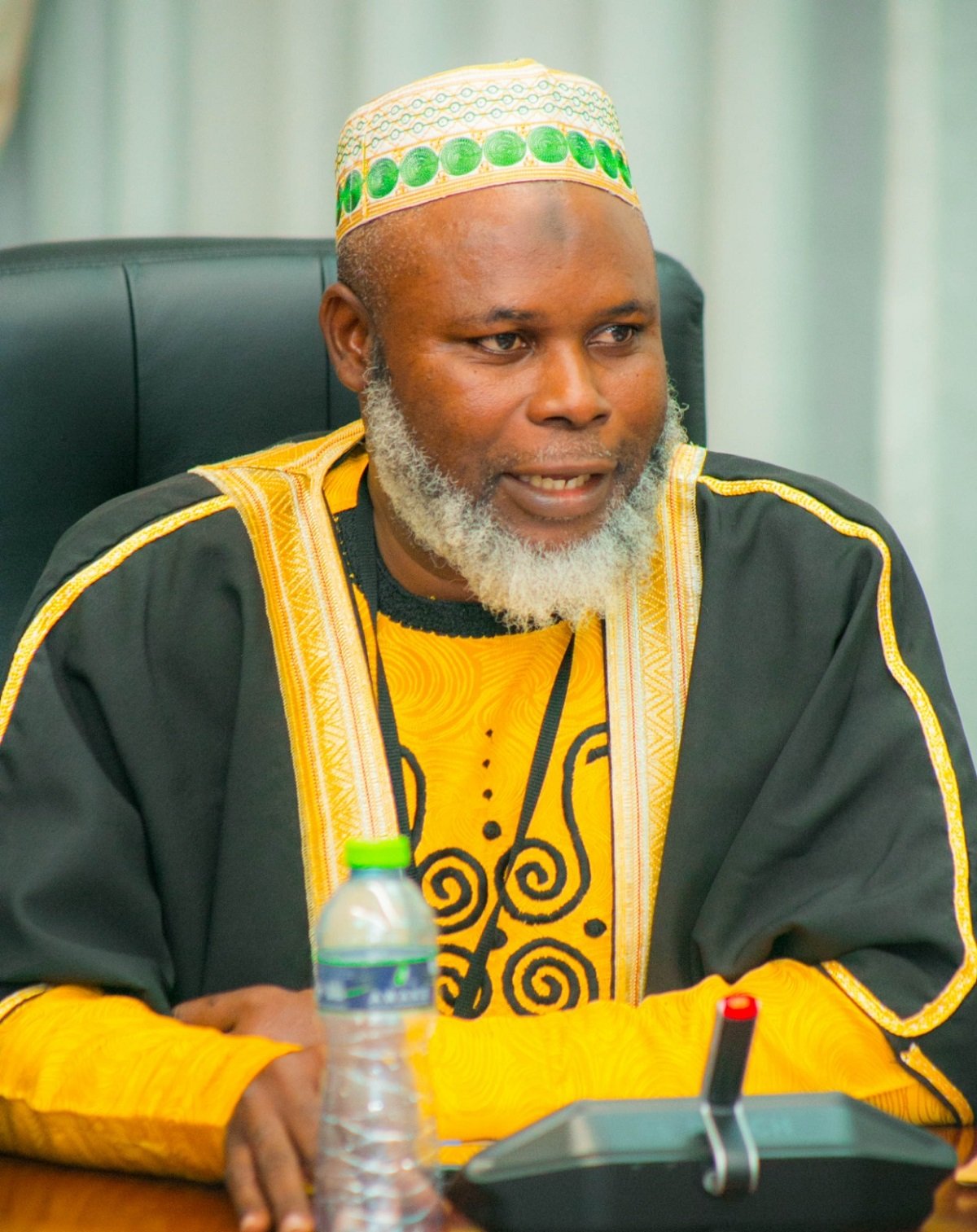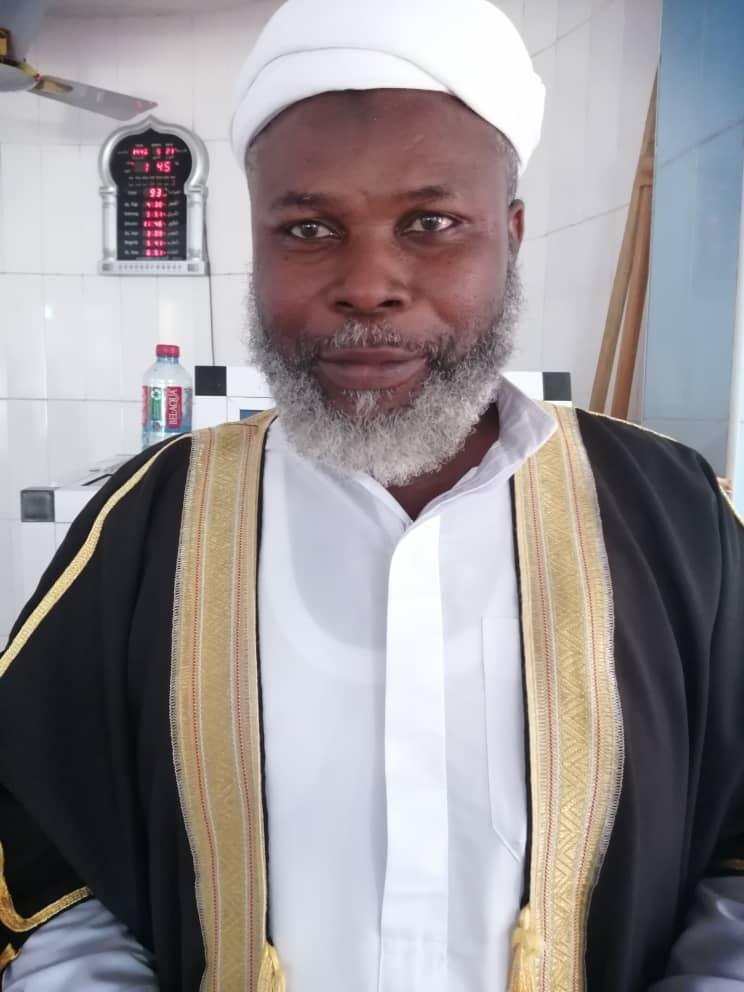Fruitful Living
Jumma Khutbah: ‘Rights and Responsibilities in Marriage under Islamic and Ghanaian Law’ (Final Part)

Another hadith highlights the Prophet’s disapproval of physical aggression within the family:
“Never hit your wives. They are your partners and sincere helpers” (Musnad Ahmad).
In these sayings, the Prophet (PBUH) reminds Muslims that kindness and gentleness are essential qualities in family relations, reinforcing that abuse has no place in an Islamic marriage.
Legal Protections: The Domestic Violence Act
In Ghana, the Domestic Violence Act, 2007 (Act 732) was enacted to prevent domestic violence, protect victims, and provide legal remedies. This Act defines domestic violence as any form of violence, whether physical, sexual, psychological, or economic, occurring within a domestic relationship.
Section 1 of the Act defines violence broadly, including not only physical assault but also acts that harm a person’s psychological wellbeing. Section 2 emphasizes the right to security in domestic relationships, reinforcing that any form of abuse or violence is unlawful and punishable under Ghanaian law.
Legal Framework in Ghana: The 1992 Constitution and Marriage Ordinances
In Ghana, the 1992 Constitution upholds the right to practice and manifest religious beliefs, including marriage in accordance with one’s faith. Article 26 protects Muslims who wish to marry, register, and dissolve marriages under Sharia law. This constitutional right enables Muslims to observe Islamic principles within their marriages, reflecting both religious and legal protection.
Furthermore, The Mohammedans Ordinance CAP 129 governs Islamic marriages, providing legal grounds for marriage, divorce, and remarriage according to Islamic principles, ensuring that Ghanaian Muslims enjoy rights aligned with both Sharia and national law.
Servants of Allah, take note that Islamic Sunni scholars unanimously emphasised the importance of respecting these protections, noting that compliance with both Islamic and national laws strengthen the legitimacy of marriage and protects Muslim families.
Other Ghanaian Legal Regimes on Marriage
Ghana’s marriage regulations are structured to support stable family environments, ensuring respect, mutual support, and individual rights. The Children’s Act (Act 560 of 1989) outlines parental responsibilities, including providing education, healthcare, and a nurturing environment for children.
Under this Act, parents are legally mandated to create a home where children receive proper care, reflecting Islamic teachings, which advocate for the moral and spiritual upbringing of the next generation. Ghanaian law thus aligns with Islam’s focus on family welfare, emphasising the role of marriage as a secure foundation for children.
The Broader Impact of Marriage in Islam and Society
Marriage in Islam is intended to foster piety, strengthen social bonds, and ensure the moral integrity of future generations. Allah (SWT) commands in the Qur’an:
“O you who have believed, protect yourselves and your families from a Fire whose fuel is people and stones…” (Qur’an 66:6).
By adhering to the principles of fairness, compassion, and respect within marriage, Muslims contribute to a strong and ethical society. Sheikh Al-Uthaymeen emphasized that a righteous household reflects in the broader community, promoting values of integrity, honesty, and mutual respect.
Conclusion
Servants of Allah, Islam promotes a household based on mutual respect, love, and kindness. Violence within the family stands in direct opposition to the teachings of Islam and is also prohibited by law. As Muslims, it is our duty to follow the principles of compassion as taught by the Prophet (PBUH) and to uphold the legal protections afforded by society to ensure a safe and harmonious family environment.
To conclude, through the guidance provided by the Qur’an, the teachings of the Prophet Muhammad (PBUH), and supportive frameworks like Ghana’s constitution and laws, marriage is recognized as a significant trust from Allah. The Prophet (PBUH) has reminded us of the accountability we hold before Allah, especially regarding how we treat our spouses.
May Allah (SWT) grant us wisdom and patience to fulfill our responsibilities within marriage and allow us to create homes filled with tranquility and righteousness.
References:
• Qur’an, Surah Al-Baqarah (2:228, 2:233)
• Qur’an, Surah At-Tahrim (66:6)
• Bukhari, Sahih Al-Bukhari, Vol. 7, Book of Nikah (Marriage), Hadiths 5136, 5138
• Prophet Muhammad’s Farewell Sermon
• Mohammedans Ordinance CAP 129, Ghana
• The Children’s Act, Act 560 (1989), Ghana
• Abdul Aziz Ibn Baz, Fatwas and Statements on Marriage
• Muhammad Ibn Salih al-Uthaymeen, Islamic Rulings on Family and Marriage
By Imam Alhaji Saeed Abdulai – 1BN Michel Camp, Tema
Fruitful Living
‘Allahu As-Samad’

Introduction to the Concept of As-Samad
Servants of Allah, one of Allah’s most profound names, As-Samad, is mentioned in Surah Al-Ikhlas, where Allah describes His oneness and perfection:
“Say, ‘He is Allah, [Who is] One. Allah, the Eternal Refuge (As-Samad). He neither begets nor is born, nor is there to Him any equivalent.’” (Qur’an 112:1-4).
The name As-Samad encompasses the idea of Allah’s absolute independence and self-sufficiency. Ibn Abbas (RA) explained that As-Samad refers to the one to whom all creation turns in times of need, while He Himself is free from any need (Tafsir Ibn Kathir).
Allah requires no sustenance, no assistance, and no support in carrying out His plans. Yet all creation—human beings, animals, plants, and even angels—rely entirely on Him for their existence, sustenance, and success.
Allah’s Independence Demonstrated in Creation
Allah’s independence is evident in the perfection of His creation. He brought the universe into existence with unparalleled mastery. Allah states:
“Indeed, your Lord is Allah, who created the heavens and the earth in six days and then established Himself above the Throne. He manages every affair…” (Qur’an 10:3).
The heavens, the earth, the mountains, the seas, and every living creature were created without the assistance of anyone. Even the most intricate systems—such as the orbiting of planets, the growth of plants, and the functioning of the human body—operate under Allah’s command.
This is further emphasised in another verse:
“To Allah belongs whatever is in the heavens and whatever is in the earth. And Allah is free of need, the Praiseworthy.” (Qur’an 31:26).
Evidence from the Sunnah
The Sunnah of the Prophet Muhammad further emphasises Allah’s independence and self-sufficiency. In a powerful hadith qudsi, Allah says:
“O My servants, all of you are astray except for those whom I have guided, so seek guidance from Me, and I shall guide you. O My servants, all of you are hungry except for those whom I have fed, so seek food from Me, and I shall feed you. O My servants, all of you are naked except for those whom I have clothed, so seek clothing from Me, and I shall clothe you.” (Muslim, Hadith 2577).
This hadith reflects Allah’s perfection in fulfilling the needs of creation while remaining independent and unaffected by those needs. Allah’s perfection in providing is limitless, as reflected in another narration:
“Allah’s Hand is full, and it does not diminish by His continuous giving day and night.” (Bukhari, Hadith 4684).
Human Dependence on Allah
Unlike Allah, humans are intrinsically dependent on Him for every aspect of their existence. Allah says:
“O mankind, you are those in need of Allah, while Allah is the Free of need, the Praiseworthy.” (Qur’an 35:15).
This dependence is not a weakness but a natural state that reminds us to turn to Allah in all matters. The Prophet Muhammad advised his companions to rely on Allah, saying:
“If you ask, ask Allah; if you seek help, seek help from Allah.” (Tirmidhi, Hadith 2516).
Believers are encouraged to place their trust in Allah, as He alone controls every affair:
“And whoever relies upon Allah – then He is sufficient for him. Indeed, Allah will accomplish His purpose.” (Qur’an 65:3).
By Imam Alhaji Saeed Abdulai,
1BN – Michel Camp
Fruitful Living
Cultivating and maintaining Godly relationships (final part)
It is important to understand that Christlike love is not self-centred. We live in a culture that promotes a “what’s in it for me” mindset in relationships. But godly relationships reflect in a different attitude. Instead of asking, “What can I get out of this relationship?” we should ask, “How can I serve, uplift, and encourage this person?”
Whether in marriage, friendships, or even work relationships, cultivating love means sacrificing our own needs for the sake of others. Christlike love is the glue that holds godly relationships together.
Ask yourself. Am I loving those around me in the way Christ loves me? Am I willing to forgive, serve, and sacrifice for others in our relationships?
If we are truly followers of Christ, love must be at the centre of how we relate to everyone.
2. Godly Relationships Are Built on Trust and Integrity
The second point is that Godly relationships are built on Trust and Integrity. Trust is the bedrock of any healthy relationship, and integrity ensures that this trust is not broken. Without trust, relationships become strained, and eventually, they fall apart.
Proverbs 12:22 says, “The Lord detests lying lips, but He delights in people who are trustworthy.” Trust is earned through honesty, faithfulness, and a commitment to doing what is right. In godly relationships, we are called to be people of our word, to be reliable, and to act with integrity at all times.
Integrity in a relationship means that we are consistent in our character—we are the same in private as we are in public. It means we are not deceitful, manipulative, or hypocritical. Instead, we are transparent and honest. This applies to all forms of relationships, whether in marriage, friendships, or even professional relationships.
Building trust requires time and intentionality. Do our actions align with our words? Can people depend on us? If we are to maintain godly relationships, we must commit to being trustworthy and people of integrity.
3. Godly Relationships Require Forgiveness and Grace
No relationship is perfect because people are not perfect. Conflict, misunderstandings, and offenses are inevitable. But godly relationships are maintained through a posture of Forgiveness and Grace.
Ephesians 4:32 instructs us to “Be kind and compassionate to one another, forgiving each other, just as in Christ God forgave you.”
One of the most challenging aspects of maintaining godly relationships is the ability to forgive those who hurt us, intentionally or unintentionally. Holding onto bitterness or grudges only destroys relationships and erodes our peace.
When we forgive, we imitate Christ, who forgave us of our sins even when we were undeserving. Forgiveness is not about denying that we were wronged, but it is a conscious decision to release the offense and allow God to heal our hearts.
Moreover, grace is essential. Grace means giving others room to make mistakes, to grow, and to change. We are all on a journey of becoming more like Christ, and grace allows us to see others as God sees them—worthy of love, compassion, and patience.
To be continued!
Stay blessed!
For further inquiries, please contact us on Tel Nos. 0243588467 or 0268130615
Email: saltnlightministries@ gmail.com
Website: saltandlightministriesgh.org
- By Rev. Dr Joyce Aryee, the author







